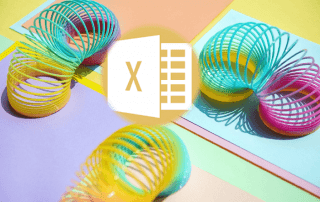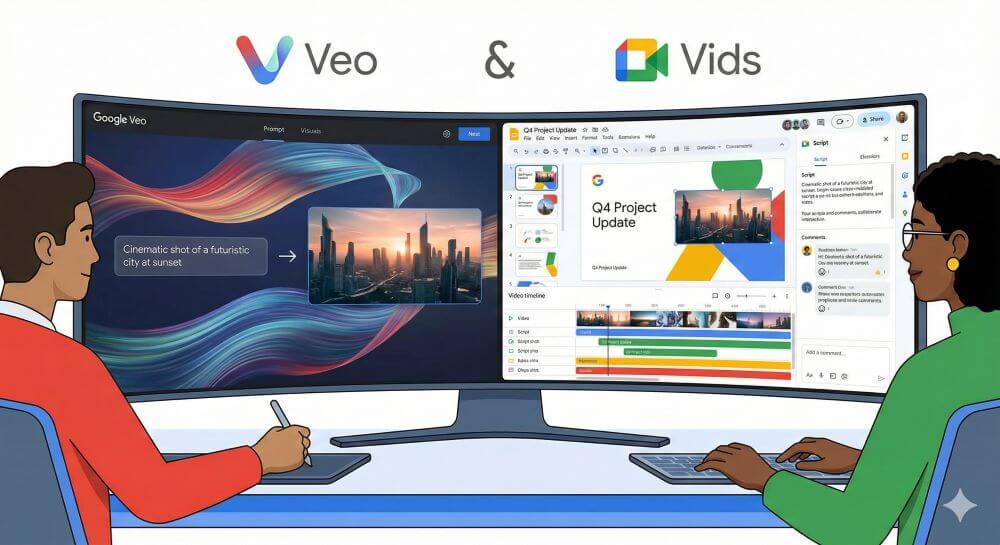ChatGPT assembles stock portfolio and wins
Wie von Forschern bereits gezeigt wurde hat der Chatbot ChatGPT von OpenAI ein umfassendes Verständnis von börsenrelevanten Themen, und sogar bisher verwendete Tools übertrifft. Die Künstliche Intelligenz (KI) kann sowohl Unternehmensnachrichten und ihre Auswirkungen auf den Aktienkurs als auch Aussagen der Fed korrekt interpretieren. Wenn man den Chatbot jedoch nach konkreten Investitionsempfehlungen fragt, erhält man normalerweise keine klaren Antworten. Doch nun ist es der britischen Finanzvergleichsseite “Finder.com” gelungen, die KI auszutricksen und sie dazu zu bringen, ein beeindruckendes Fondsportfolio zusammenzustellen, dessen Leistung überzeugt.
As demonstrated by researchers, OpenAI’s ChatGPT chatbot has a deep understanding of stock market-related topics, even outperforming tools used previously. The artificial intelligence (AI) can correctly interpret company news and its impact on the share price as well as statements from the Fed. However, if you ask the chatbot for specific investment recommendations, you usually don’t get clear answers. But now the British financial comparison site Finder.com has managed to trick the AI into putting together an impressive fund portfolio that is performing well.

ChatGPT assembles stock portfolio and wins
Wie von Forschern bereits gezeigt wurde hat der Chatbot ChatGPT von OpenAI ein umfassendes Verständnis von börsenrelevanten Themen, und sogar bisher verwendete Tools übertrifft. Die Künstliche Intelligenz (KI) kann sowohl Unternehmensnachrichten und ihre Auswirkungen auf den Aktienkurs als auch Aussagen der Fed korrekt interpretieren. Wenn man den Chatbot jedoch nach konkreten Investitionsempfehlungen fragt, erhält man normalerweise keine klaren Antworten. Doch nun ist es der britischen Finanzvergleichsseite “Finder.com” gelungen, die KI auszutricksen und sie dazu zu bringen, ein beeindruckendes Fondsportfolio zusammenzustellen, dessen Leistung überzeugt.
As demonstrated by researchers, OpenAI’s ChatGPT chatbot has a deep understanding of stock market-related topics, even outperforming tools used previously. The artificial intelligence (AI) can correctly interpret company news and its impact on the share price as well as statements from the Fed. However, if you ask the chatbot for specific investment recommendations, you usually don’t get clear answers. But now the British financial comparison site Finder.com has managed to trick the AI into putting together an impressive fund portfolio that is performing well.

ChatGPT puts together a top-class stock portfolio
ChatGPT puts together a top-class stock portfolio
The experts from “finder.com” asked ChatGPT to create a stock portfolio with at least 30 stocks that follows the investment principles of leading funds. The AI portfolio should include companies that are high quality, have low debt, sustainable growth and competitive assets. So the chatbot had to take a few parameters into account for an answer. Although ChatGPT was initially reluctant to name specific stocks and stressed that it could not provide individual investment advice, it was nonetheless quick to cooperate when told it was just a theoretical exercise.
As a result, ChatGPT assembled a hypothetical portfolio of 38 stocks that is quite impressive. The AI portfolio includes well-known companies such as Meta, Microsoft, Intel, Johnson & Johnson, Visa, Alphabet, Coca-Cola, Nestlé, Amazon, Adobe, Salesforce, Walmart, NVIDIA and Berkshire Hathaway. The performance of ChatGPT’s portfolio is also impressive: within the first two months after its composition on March 6, the basket of shares is up 4.9 percent. Over the same period, the S&P 500 was up only about 3%, while the UK’s most popular funds fared even worse.
Unfortunately, however, Finder.com does not provide detailed information on the average values of all ten established funds. A look at Interactive Investor’s website shows that not all of the most popular funds have fared so poorly. For example, the Fundsmith Equity I Acc fund also achieved a positive return over the eight-week period under review, albeit significantly less than the portfolio put together by ChatGPT.
It’s also important to note that eight weeks is a relatively short period of time to compare performance, and performance can vary over several months or years.
To assess the performance of the ChatGPT fund, Finder.com compared its performance over the first eight weeks of hypothetical creation to that of ten popular UK funds that are regularly published on the Interactive Investors website. These funds come from Vanguard, Fidelity and HSBC and primarily have a global investment focus. According to the financial comparison portal, these funds lost an average of 0.8 percent in value in the period under review. That means they significantly underperformed the AI’s stock portfolio. Additionally, ChatGPT outperformed real-world funds 87 percent of the days during the study period. The largest difference between the AI portfolio and the real funds was observed on April 6, when the ChatGPT portfolio was up 4.7 percent while the real funds lost an average of 1.9 percent.
Whether investors should leave their investment decisions to an AI in the future is a complex question. The performance of the ChatGPT fund is undoubtedly remarkable, especially since the AI shouldn’t be making any investment recommendations. It didn’t take the public long to find creative ways to get ChatGPT to help them in areas where it shouldn’t technically be possible, as OpenAI has programmed some mechanisms into ChatGPT to not give such risky advice. However, it probably won’t be long before many people are conducting their own experiments to use AI for financial gain. In fact, a study of 2,000 UK consumers commissioned by the comparison site shows that eight percent of respondents have received financial advice from ChatGPT. Another 19 percent would consider it. Millennials and Generation Z have shown themselves to be more open to AI for financial advice than older generations.
However, while the democratization of AI appears to be revolutionizing the financial industry, it is still being warned that it is still too early for consumers to get carried away with AI when it comes to their own finances. In fact, the majority of survey participants seem to think so too. 35 percent said they don’t want to receive financial advice from the AI at this time, while another 38 percent said they were unsure what ChatGPT even is.
However, while the democratization of AI appears to be revolutionizing the financial industry, it is still being warned that it is still too early for consumers to get carried away with AI when it comes to their own finances. In fact, the majority of survey participants seem to think so too. 35 percent said they don’t want to receive financial advice from the AI at this time, while another 38 percent said they were unsure what ChatGPT even is.
The experts from “finder.com” asked ChatGPT to create a stock portfolio with at least 30 stocks that follows the investment principles of leading funds. The AI portfolio should include companies that are high quality, have low debt, sustainable growth and competitive assets. So the chatbot had to take a few parameters into account for an answer. Although ChatGPT was initially reluctant to name specific stocks and stressed that it could not provide individual investment advice, it was nonetheless quick to cooperate when told it was just a theoretical exercise.
As a result, ChatGPT assembled a hypothetical portfolio of 38 stocks that is quite impressive. The AI portfolio includes well-known companies such as Meta, Microsoft, Intel, Johnson & Johnson, Visa, Alphabet, Coca-Cola, Nestlé, Amazon, Adobe, Salesforce, Walmart, NVIDIA and Berkshire Hathaway. The performance of ChatGPT’s portfolio is also impressive: within the first two months after its composition on March 6, the basket of shares is up 4.9 percent. Over the same period, the S&P 500 was up only about 3%, while the UK’s most popular funds fared even worse.
Unfortunately, however, Finder.com does not provide detailed information on the average values of all ten established funds. A look at Interactive Investor’s website shows that not all of the most popular funds have fared so poorly. For example, the Fundsmith Equity I Acc fund also achieved a positive return over the eight-week period under review, albeit significantly less than the portfolio put together by ChatGPT.
It’s also important to note that eight weeks is a relatively short period of time to compare performance, and performance can vary over several months or years.
To assess the performance of the ChatGPT fund, Finder.com compared its performance over the first eight weeks of hypothetical creation to that of ten popular UK funds that are regularly published on the Interactive Investors website. These funds come from Vanguard, Fidelity and HSBC and primarily have a global investment focus. According to the financial comparison portal, these funds lost an average of 0.8 percent in value in the period under review. That means they significantly underperformed the AI’s stock portfolio. Additionally, ChatGPT outperformed real-world funds 87 percent of the days during the study period. The largest difference between the AI portfolio and the real funds was observed on April 6, when the ChatGPT portfolio was up 4.7 percent while the real funds lost an average of 1.9 percent.
Whether investors should leave their investment decisions to an AI in the future is a complex question. The performance of the ChatGPT fund is undoubtedly remarkable, especially since the AI shouldn’t be making any investment recommendations. It didn’t take the public long to find creative ways to get ChatGPT to help them in areas where it shouldn’t technically be possible, as OpenAI has programmed some mechanisms into ChatGPT to not give such risky advice. However, it probably won’t be long before many people are conducting their own experiments to use AI for financial gain. In fact, a study of 2,000 UK consumers commissioned by the comparison site shows that eight percent of respondents have received financial advice from ChatGPT. Another 19 percent would consider it. Millennials and Generation Z have shown themselves to be more open to AI for financial advice than older generations.
However, while the democratization of AI appears to be revolutionizing the financial industry, it is still being warned that it is still too early for consumers to get carried away with AI when it comes to their own finances. In fact, the majority of survey participants seem to think so too. 35 percent said they don’t want to receive financial advice from the AI at this time, while another 38 percent said they were unsure what ChatGPT even is.
However, while the democratization of AI appears to be revolutionizing the financial industry, it is still being warned that it is still too early for consumers to get carried away with AI when it comes to their own finances. In fact, the majority of survey participants seem to think so too. 35 percent said they don’t want to receive financial advice from the AI at this time, while another 38 percent said they were unsure what ChatGPT even is.
Popular Posts:
Create a Word letter template with form fields
Create a professional DIN 5008 letter template with form fields and drop-down lists in Microsoft Word, and write letters as easily as you would fill out a form.
Protect Word documents from editing
Protect your documents in Microsoft Word from unauthorized editing or block access completely.
Show and remove duplicate entries in Excel | Tutorial
We explain how to remove duplicate entries from Excel. And also how you can only display duplicate entries in Excel but not delete them immediately in order to decide on a case-by-case basis.
Create vCard with Business Photo in Outlook
Whereas digital business cards used to be used primarily in e-mail programs such as Outlook, today they are increasingly being sent via e-mail, SMS or messenger services such as WhatsApp to smartphones
Custom Formatting Excel – Number Format Codes Excel
We use a practical example to explain the importance and possible uses of custom formatting in Excel. Number format codes in Excel are not rocket science!
How to create a dynamic table in Excel
This is how you conveniently create a dynamic table in Excel and have it automatically carry out calculations.
Popular Posts:
Create a Word letter template with form fields
Create a professional DIN 5008 letter template with form fields and drop-down lists in Microsoft Word, and write letters as easily as you would fill out a form.
Protect Word documents from editing
Protect your documents in Microsoft Word from unauthorized editing or block access completely.
Show and remove duplicate entries in Excel | Tutorial
We explain how to remove duplicate entries from Excel. And also how you can only display duplicate entries in Excel but not delete them immediately in order to decide on a case-by-case basis.
Create vCard with Business Photo in Outlook
Whereas digital business cards used to be used primarily in e-mail programs such as Outlook, today they are increasingly being sent via e-mail, SMS or messenger services such as WhatsApp to smartphones
Custom Formatting Excel – Number Format Codes Excel
We use a practical example to explain the importance and possible uses of custom formatting in Excel. Number format codes in Excel are not rocket science!
How to create a dynamic table in Excel
This is how you conveniently create a dynamic table in Excel and have it automatically carry out calculations.

































